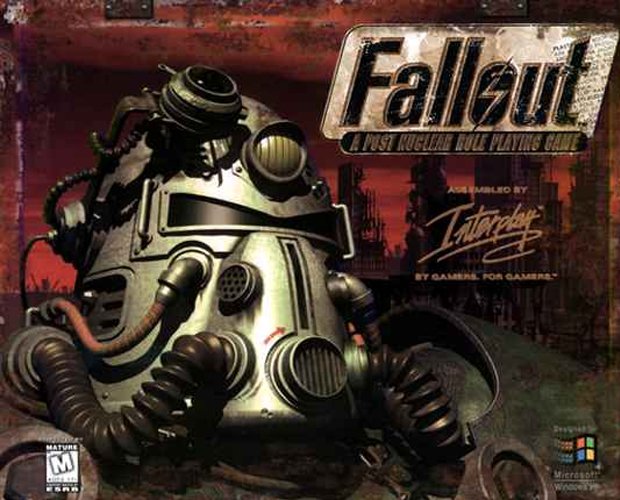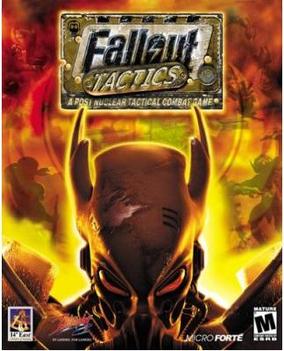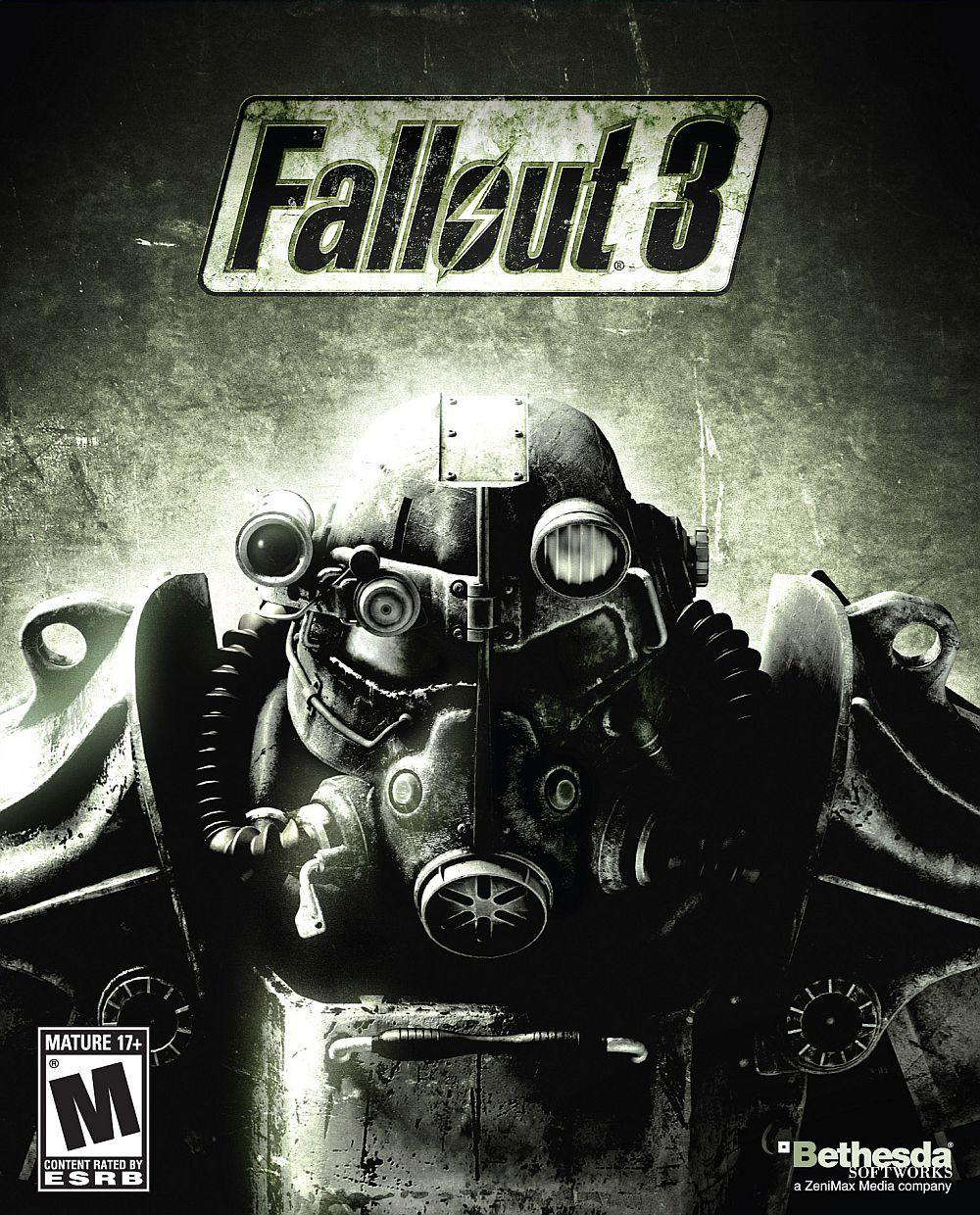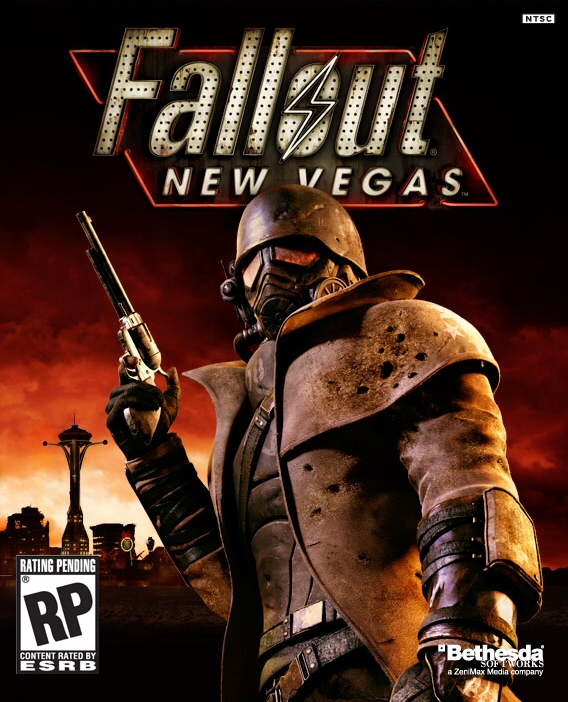For me Fallout is one of the single most poignant works of popular culture that I have encountered. The original Fallout hit all the right points to make it appeal to me in every way, from the blasted out retro-futurism to the somber yet hopeful tone the game struck - I was hooked. My feelings about Fallout and the impact that it had on me are pretty well known, so I'm not going to spend a lot of time gushing about how much I loved it; no, I've come not to praise Fallout but to bury it. But, before we get to why the series has been run into the ground, let's have a quick look at it starting at the beginning.
Fallout: A Post Nuclear Role Playing Game was a relatively small cRPG, especially when compared to the legacy it'd launch. The game takes place in California and introduces the player to the staple of the series, the sprawling bomb shelters known as 'vaults.' Immediately after introducing Vault 13 the player is promptly kicked out of it and into the harsh desert wasteland a la Mad Max wearing nothing but their futuristic bright blue spandex suit. The player is tasked with finding a controller chip for the vault's water purification system, without it the vault will run out of clean water and everyone will die. Along the way the Vault Dweller encounters the Super Mutant army led by The Master as well as the Brotherhood of Steel, two groups that would become staples of the Fallout series moving forward. The Brotherhood of Steel is presented here as a xenophobic group of technology worshipers clad in power armor, yet unable to produce replacement suits due to insufficient materials and tools, thus leading them to meticulously care for the armor and their high-tech weapons. The Brotherhood can be persuaded to assist the player with a small force of paladins (four total across two scenarios) but otherwise they want no part in the greater world. The Super Mutants are the primary threat faced by the player, created by The Master as a new race that can thrive in the wasteland. One of the options available to the player is to discover that Mutants are sterile and cannot reproduce, a fact that will lead The Master to suicide upon realizing the futility of his work. In the end the Vault Dweller wins the day but is refused entry back into his home, because the Overseer fears his exploits will drive others to attempt to leave the safety of Vault 13.
Fallout 2 picks up roughly a generation after Fallout ended and also takes place in and around California. The player now takes on the role of a tribal hero known as the Chosen One, who is descended (rather recently, one would guess) from the Vault Dweller, the founder of the tribe. The tribe is dying due to poor farming conditions and the Chosen One is sent out to find the G.E.C.K. (Garden of Eden Creation Kit) in hopes that this technological marvel will save the doomed tribe. Along the way the player encounters a growing nation state, the New California Republic (NCR) which has sprung up from a settlement that the Vault Dweller helped in the first game. The Brotherhood of Steel is withering away and even more reclusive, only showing up in a few small bunkers that monitor the towns and offering only token material support to the player. The Super Mutant army is now reduced to roving war-bands who attack travelers at random and a few friendlies who have settled a mining town. The main enemy this go around is the Enclave, a military group clad in new Advanced Power Armor who are secreted away on an oil rig that was the bomb shelter for the President of the United States. The Enclave believe that they are the ruling government of the wasteland and seek to eradicate all mutant life from the country, which means everyone who isn't in a vault, and their evil plan requires a G.E.C.K. to accomplish. In the end, the Chosen One blows up the oil rig killing the President and the Enclave and saving their village.
Fallout Tactics is the moment shit got weird for Fallout. The diminishing Brotherhood of Steel now sends airships full of paladins west for reasons and then the ships crash leaving them stranded. They develop a new type of power armor and start recruiting so that they can become the police of the mid-western wasteland. The Brotherhood run up against a self-aware A.I. that has an army of robots bent on destroying human life and ruling the wastes. Or something.
Fallout 3 was the first Fallout game developed by Bethesda Softworks and it is widely and wrongly regarded as the best game in the series.
Fallout 3 takes place in and around the D.C. area. The player takes on the role of a vault dweller who leaves the vault in nothing but their now baggy dark blue vault suit to chase down their run-away father. The father is out in the wastelands trying to provide clean water so that everyone doesn't die (how those people survived the previous 200 years since the war is unclear) which requires a G.E.C.K. The Brotherhood of Steel has sent a sizable force from California to D.C. on foot, for reasons and they now act as the guardians of the D.C. area. The Enclave is alive and well and also happen to be in the D.C. area, which actually makes more sense than California if only it didn't contradict the establish story. The Enclave is led by a self-aware A.I. and they again want to wipe out all mutated life in the wasteland. Super Mutants are present, though they have nothing to do with the Master, thankfully. Ultimately the Brotherhood of Steel launches a full scale assault on the Enclave to protect the water purification center and there is a giant robot that throws nuclear bombs like footballs. So basically it's just a rehash of the high points from the first two games with a bit of Tactics thrown in for good measure (especially visually).
Also, that shit with Harold was completely stupid.
Fallout: New Vegas is the high water mark for the Fallout series. Developed by Obsidian Entertainment with J.E. Sawyer, who had previously worked on the unreleased Van Buren* and other Fallout projects, as the project lead
Picking up some years after the end of Fallout 2, the game explores the issues faced by the sprawling and dominant NCR as it struggles to expand and provide a quality of life to all of its citizens. Facing up against it is Caesar's Legion, a tribal group who have reshaped themselves in the image of Imperial Rome. Both factions offer a different type of peace and prosperity and caught in the middle is New Vegas itself, an independent and relatively unscathed town in the Mojave wasteland that both groups want to bring under their control due to the intact and functional Hoover Dam power plants. The player takes on the role of a courier who was left for dead for unknown reasons. Returning are the Brotherhood of Steel who have a tiny isolated garrison near to Vegas and are licking their wounds from a nasty defeat by the overwhelming force of the NCR. Super Mutants have a peaceful town in the mountains that is refuge for their kind to live out their days in peace and comfort. There are a few (like 6) former Enclave soldiers that can be discovered if the player follows a very specific plot thread and series of interactions. The game culminates in a Second Battle for Hoover Dam where the player, depending on the choices they've made throughout the game, can have New Vegas join the NCR, the Legion, or remain its own independent nation-state.
New Vegas advanced the series and the original story in a way that felt organic. It definitely benefited from having Chris Avellone and Josh Sawyer on the team either of whom would be ringers on their own. Tim Cain, one of the creators of Fallout, was asked about a Fallout sequel once and responded with "My idea is explore more of the world and more of the ethics of a post-nuclear world, not to make a better plasma gun" and ultimately New Vegas is the exemplar of that philosophy making it the true Fallout 3.
In the Future There Will Be Fallout
There is a new Fallout game on the horizon, again being developed internally by Bethesda Softworks. It'll be interesting to see how BethSoft handles a new Fallout game, considering that their previous game, Fallout 3, was a simple recycling of previous story points and factions.
One of the few things Fallout 3 got right was the intro song, which have always been iconic to the series. With the first Fallout, the development team wanted to use I Don't Want to Set the World On Fire by The Ink Spots but could not secure the rights, leading them to securing Maybe by that same group. Bethesda's Fallout 3 opens with I Don't Want to Set the World On Fire, which is a nice call back to the desires of the original creators but also betrays a lack of vision by the current development team.
Bethesda's game holds a special place in the history of series, being embraced with near universal praise. I believe that the appeal comes from it's safe and bland nature that pushed no boundaries and presented little if any new ideas, while simultaneously shaving the edges off of the riskier parts of the Fallout series (such as the goofy but iconic spandex jumpsuits). While the game was visually safe and unassuming, it was also relentlessly silly taking the series long establish trend of goofy Easter eggs and turning it up to 11, making them central to the story and overwhelmingly dumb (Antagonizer or the vampire teen run-aways, anyone?).
Overall Bethesda presented a game that has but a few original ideas and of those most feel out of place or wrong for the series as it was previously established. When it does get something right, it's a recycled song or entire plot thread. So what will they do now that they are completely on their own? They have a story on the opposite side of the country from the original with endless opportunities to craft something in that world that is both exciting and unique. But do they have the team for it? Exciting and unique don't really seem to be words that typify any Bethesda game, Fallout or otherwise - derivative and watered down, perhaps.
Regardless, whatever comes next will likely be meet with yet more universal praise. Game criticism is one of the least discerning groups of critics out there who have a well established pattern of praising AAA games regardless of quality only to contradict themselves a year later in a 'look back' article.
Last Minute Addendum!
I took long enough writing this that the new trailer came out, so for a bit of last minute commentary I'll add my thoughts on it. The trailer opens with a call back to the original opening of Fallout 1, which is nice but does nothing to calm fears of yet another retread.
There are a lot of flashes to pre-war America while showing a ruined house that's in damn good shape for being left for 200 years. Vertibirds are back yet again and being presented as pre-war tech. The mismatched and bulky armors are nice, though too much focus on power armor tech can weigh Fallout down, as it is a story about people more than gear. The airships draw me back to Tactics and you never want to evoke that game if you can help it. There are a lot of fun looking settlements and neon lit signs that look like they'll be nice to look at. I noticed a few more call backs that don't soothe fears that BethSoft has an originality issue, but it'll be hard to say until the game is out.
My closing thoughts are that I will now happily eat crow over the Vault suit, which is once again bright blue and skin tight; I really didn't think BethSoft had the guts to pull that out but it's a pleasant surprise. Overall the game looks bright and colorful, in keeping with the Fallout aesthetic and is pretty much the opposite of what Fallout 3 was.
*Several plots and characters from Van Buren find their way into New Vegas.





















